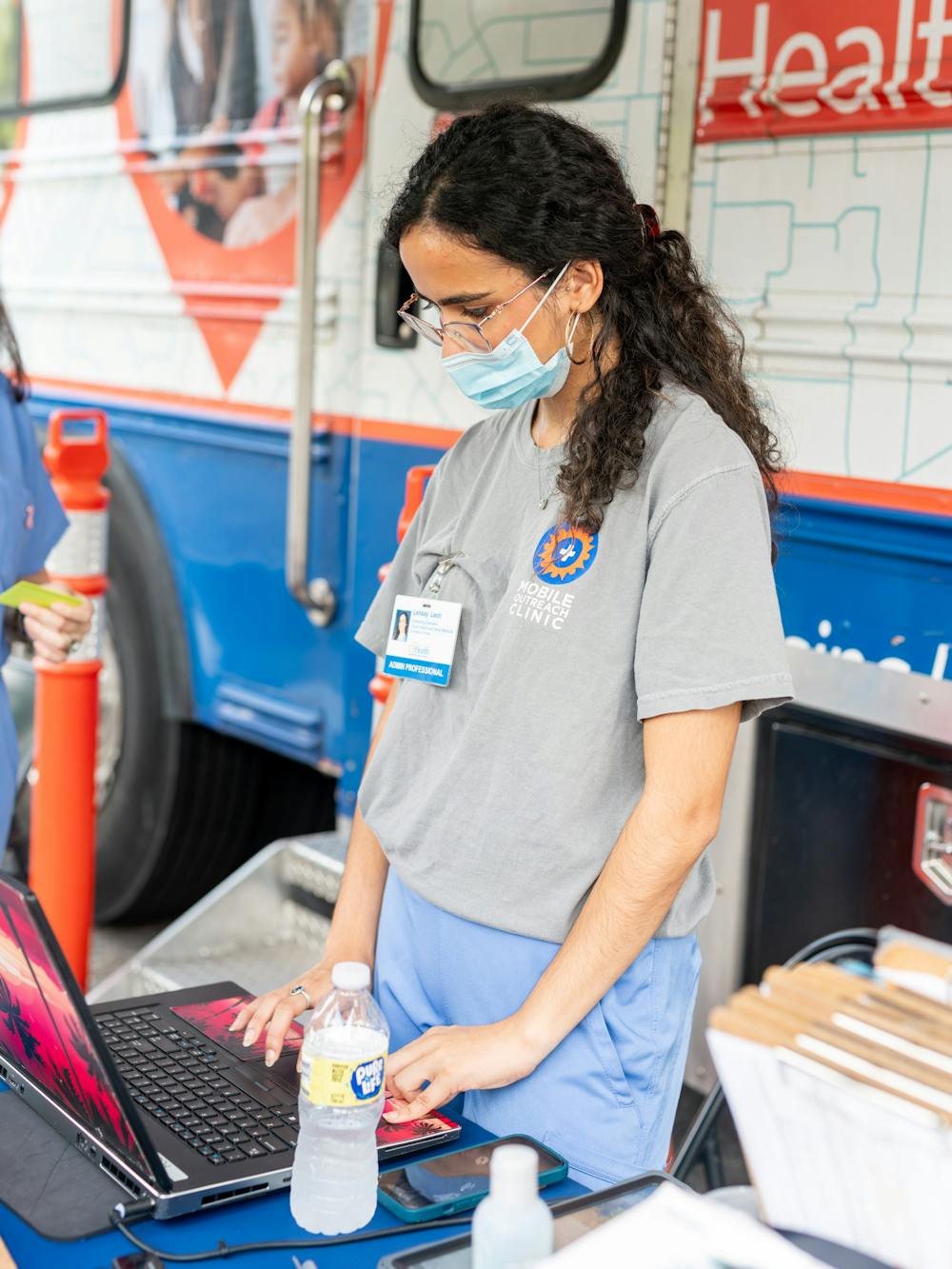For UF assistant professor and extension specialist John Diaz, language access and inclusion for Latino communities is a constant mission.
“There's a lot of disparities that exist within that community,” Diaz said. “We do a lot of work to bring community and services to them that they desperately need.”
Diaz contributes to this effort as president of the Coalition of Florida Extension Educators for Latino communities, informally known as CAFÉ Latino. This organization began as part of UF’s branch of the Cooperative State Research, Education, and Extension Service. Known simply as “the extension,” this government agency is part of the U.S. Department of Agriculture and focuses on advancing agriculture, human health and communities by funding extension programs at universities.
CAFÉ Latino began in 2017 as a grassroots organization of 15 UF extension service professionals who recognized a need to develop capacity and competency of extension services to connect Latino communities in Florida with research-based solutions.
Now, it manages 74 extension service members and works with an ever-growing network of partner organizations.
CAFÉ Latino serves the Hispanic community in Florida by translating documents, training educators and developing programs in ways that are culturally responsive to these communities.
Consistent with its roots, CAFÉ Latino’s largest programs are its extension based. With the Family Nutrition Program, for example, CAFÉ Latino works on education, which gives those receiving financial assistance resources in Spanish and cater towards any needs in language access.
CAFÉ Latino also contributed to the UF/IFAS Extension service’s Hispanic environmental assessment. It helped UF assistant professor Hance Ellington, who is overseeing the assessment, target the survey toward the Hispanic community.
While CAFÉ Latino does have a role in supporting the Latino community, it also facilitates administration with other organizations, Diaz said.
The free health fair organized by Children Beyond Our Borders serves as one such example of collaboration; alongside CAFÉ Latino and Children Beyond Our Borders, The Equal Access Clinic Network, Project Continuity, and various UF Health organizations collaborated to bring this event to the Hispanic community.
“CAFÉ Latino helps to understand what services are needed for the community,” Diaz said in reference to the health fair. “So we're making connections not only in the planning part, but we will be there on the ground to make sure that as needs come up those are manifested within the system.”
This health fair provides numerous services to the Latino community free of charge: OBGYN exams, mammograms, pediatrics and adult medicine, vaccines, diabetes screenings, and checks for blood pressure, cholesterol and Anemia.
One way that CAFÉ Latino works on the ground is through translation and interpretation to promote health literacy. This is especially important for an event that serves the Hispanic community, as emphasized by María Eugenia Zelaya, the 46-year-old executive director of Children Beyond Our Borders and main coordinator for the event.
“When they come in here, people know there will be somebody speaking their language,” Zelaya said. “We want to provide what they can find in other places and clinics but in Spanish.”
Andrea Guzman, a 25-year old health fair volunteer and UF microbiology master’s student, helps to walk patients through their check-ups and better understand their health.
“The terminology used with medical terms is a little bit different and tough to translate,” Guzman said. “So to explain it in English to somebody that speaks Spanish, they might have trouble understanding what you're trying to tell them exactly. It's important to have that Spanish communication with them.”
Aside from providing language access to the community, the fair also incorporated screenings for Chagas, an inflammatory, infectious and life-threatening disease endemic to the Florida Latino community. After one is infected by the triatomine bug, or “kissing bug,” the disease can progress to a chronic phase and can lead to complications such as congestive heart failure.
“It's a neglected disease,” said Janeice Smith, a 69-year-old volunteer with the National Kissing Bug Alliance. “And it's also called a silent killer because people aren't aware of it.”
The stigmas attached to the disease also contributes to this lack of awareness, according to Bernardo Moreno, a medical anthropology doctoral candidate at UF.
“[Chagas] is associated with poverty and rural housing in precarious conditions,” Moreno said. “In Latin America, it's not well perceived by society. Here in the U.S., you add another layer, which is migrant Latin Americans. The stigmatization becomes even more intense.”
Of the estimated 300,000 infected in the U.S., only around 1% are diagnosed. Its lack of public awareness, stigmatization and threat to life have made this disease a point of passion for Norman Beatty, a 40-year-old UF Health infectious disease specialist.
“We're finding is this is a disease that needs attention in Florida, because of our diverse population of Latin Americans,” said Beatty. “From these screenings, we have diagnosed people with Chagas disease, we've been able to offer them therapy, and even get them more advanced testing if needed.”
One of the main problems that CAFÉ Latino faces in its service of the Latino community is its capacity to serve with limited resources, Diaz said.
“Florida is really the gateway from Latin America into the United States,” he said. “Every year there's more and more Latinos, which is more and more people UF and the extension has to serve.”
Contact Eluney at editor@alligator.org. Follow him on Twitter @Eluney_G





